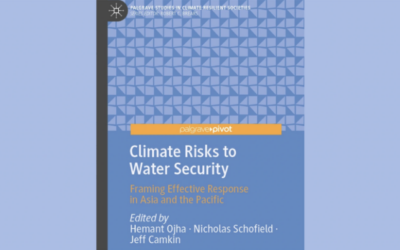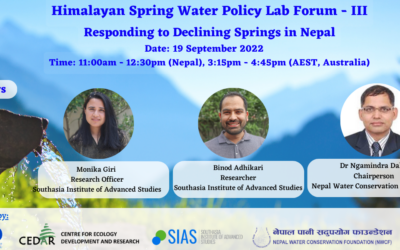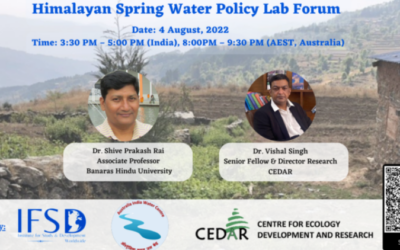By Priyanka Gurung, Purnima Banjade | 5 Mar 2023 Water has been an essential aspect of human life throughout history, and the looming global water...
Water Security
Approximately 2 billion people live in water-stressed countries with limited access to safe drinking water. Water insecurity is a growing concern further exacerbated by climate change. Improving governance, management, distribution, infrastructure, and technology is critical for universal access to clean water.
IFSD is dedicated to conducting action research and developing creative solutions to provide equal access to safe drinking water for all. We are devoted to offering significant solutions that address the most important water-related concerns faced by communities around the world, drawing on our extensive expertise working on various water projects. Our experience and collaborative approach enable us to collaborate closely with stakeholders to create and implement long-term water security solutions.
Latest
Himalayan Spring Water Policy Lab Forum Report III
Episode III – Declining springs in Nepal Report summarising the event proceedings and outcomes Overview The Himalayan Spring Water Policy...
Himalayan Spring Water Policy Lab Forum II
Episode II – Focus on India A Report summarizing the event proceedings and outcomes Overview The Himalayan Spring Water Policy Lab (HS – WPL)...




